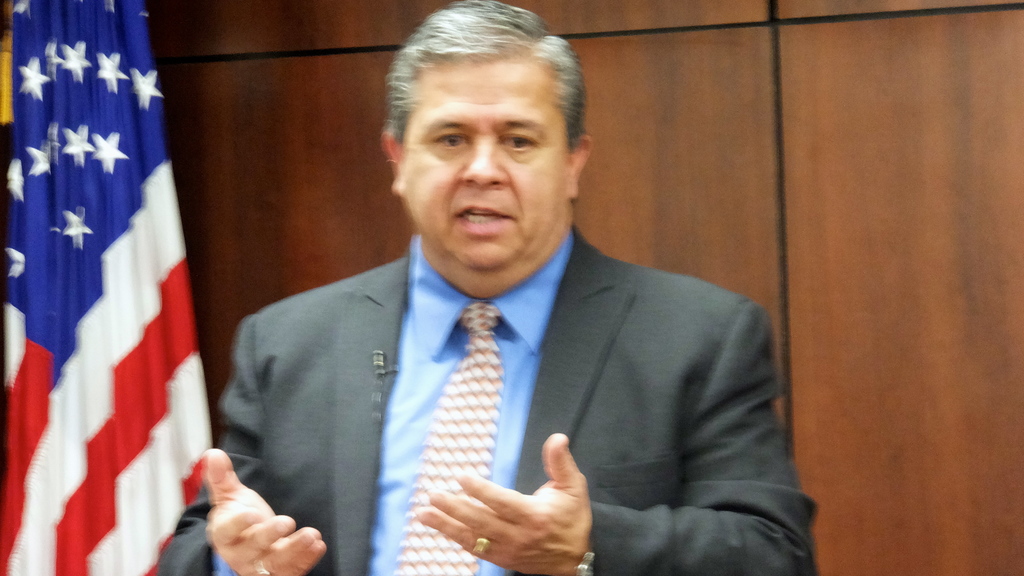Six weeks before a contract deadline, more than 80 high schools and junior high schools are waiting for new WiFi hookups.

But Superintendent of Public Instruction Tom Luna says all the hookups will be completed by March 15.
“We’re on pace to get those done,” Luna told the House Education Committee during a briefing Tuesday morning.
The briefing on the controversial WiFi contract was strictly informational — there is no legislation in the hopper addressing the multiyear contract, signed in July. Eventually, the Legislature will have to decide whether to continue funding the contract; Luna has requested an additional $2.25 million for 2014-15.
On Tuesday, Luna updated lawmakers about progress on the project — funded, at least through June 30, with a $2.25 million budget line item approved last spring.
More than 80 percent of the state’s school districts signed on for the state-funded WiFi hookups, but the number of schools receiving WiFi appears to be down from initial forecasts. Originally, the state expected some 200 junior and senior high schools to receive the new service; on Tuesday, Luna pegged the figure at 176. The new WiFi is operational in 93 schools, Luna said Tuesday, and the state’s contractor, technology giant Education Networks of America, has a March 15 deadline to finish the project.
Luna signed the multiyear contract with ENA in July — drawing criticism from several key legislators who did not believe they had committed the state to a project that could run 15 years at a cost of more than $31 million. Gov. Butch Otter also questioned the process, but recommends continued contract funding.
In contrast to last summer’s controversy, Luna was treated cordially in committee Tuesday. He fielded a wide-ranging array of questions, with only a few tough questions thrown in:
- Luna defended the decision to contract out the WiFi work. Had the state done the work in-house, Luna said, taxpayers would have had to pay $8 million in up-front hardware costs. “I’m not confident that a state agency could do this as effectively or as efficiently.”
- Luna defended clauses in the contract that allow ENA to continue to own the equipment it installs. He likened the language to household wireless, cell phone and cable TV contracts, which allow a customer to lease equipment and upgrade in the future. If the state renews its contract at the end of five years, ENA would be expected to upgrade WiFi agreement; if the contract ends after five years, ENA could be forced to pull out its old equipment.
- Luna explained a review committee’s unanimous decision to award the contract to the Nashville, Tenn.-based ENA, even though two Idaho companies submitted lower bids on the contract. ENA — which has made campaign contributions to Otter, Luna and more than 40 sitting legislators — also has a strong history working in Idaho schools, as contractor on the Idaho Education Network broadband contract. “ENA was not new to Idaho,” said Luna.
At one point during questioning, Rep. Lance Clow sided with Luna, suggesting that lawmakers should have known a year ago that they were embarking on a long-term project to install, maintain and repair WiFi across the state.
“What did people expect they were going to get for $2.25 (million?)” Clow, R-Twin Falls, asked rhetorically.
